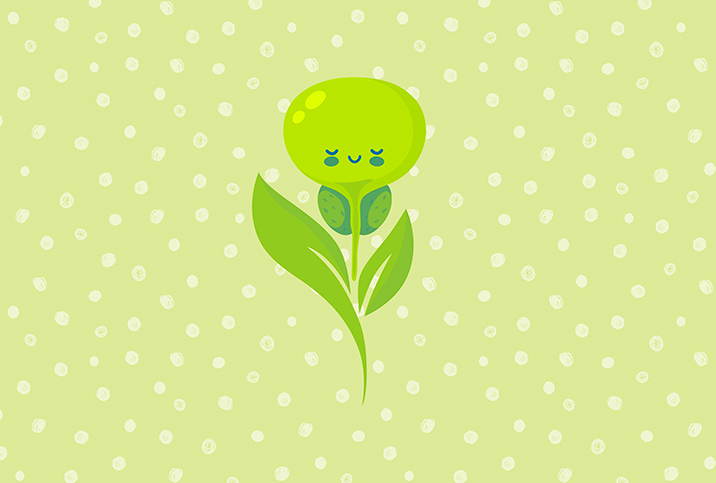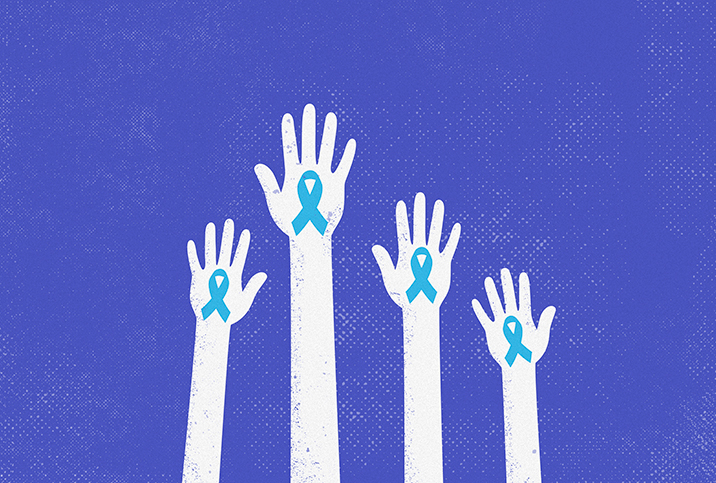How to Keep Your Prostate Healthy: 5 Natural Ways

As the walnut-sized gland known as the prostate ages, it can suffer from inflammation and enlargement, conditions known as prostatitis and benign prostatic hyperplasia (BPH), respectively. Prostate cancer affects 1 in 8 men, most often when they've reached age 65 or older.
Physicians, particularly urologists, usually recommend pharmaceutical preparations to maintain prostate health. As beneficial as these may be, the long-term use of pharmaceuticals often has adverse side effects. Instead, pharmacists and naturopathic physicians recommend several natural compounds to keep your prostate healthy. They have side effects, too, but they offer a different avenue of prostate treatment.
Natural solutions for better prostate health
The Food and Drug Administration has not approved any natural remedies for prostate health. However, research suggests many herbs used to treat urinary disorders may also help improve prostate health.
Interest in alternative therapies for prostate disease is at an all-time high, said Natasha Stamper, Pharm.D., a clinical pharmacist based in Lewiston, Idaho. She explained these therapies have shown potential to relieve BPH and prostatitis, and it may have to do with the anti-inflammatory properties of these nutraceuticals.
1. Saw palmetto
Saw palmetto is a natural dietary supplement derived from the shrub-like plant of the same name that primarily grows in the southeastern United States. Saw palmetto has long been used by the healers of Native American tribes as a diuretic and urinary antiseptic to treat many genitourinary disturbances, including cystitis and prostate enlargement.
A 2021 review titled, "The Therapeutic Potential of Saw Palmetto Extract in Urological Disorders," suggested saw palmetto extract is safe to use, and several studies confirm its effectiveness in treating BPH. However, as promising as that sounds, the same study acknowledged that the extract needs to be studied on a much broader scale to establish the proper dosage and administration.
2. Pygeum
Pygeum is a natural supplement derived from the bark of the African plum tree (Pygeum africanum) and synthesized similarly to aspirin. Findings suggest pygeum works by improving bladder control and facilitates bladder emptying to relieve some of the physical stress within the prostate area.
A 2011 study found pygeum helps prevent the spread of prostate stromal cells in people with BPH, while another study demonstrated how this supplement inhibits the growth of prostate cancer cells.
3. Rye grass pollen extract
Rye grass has long been used as a tisane, or herbal tea, to relieve the pain of an enlarged prostate, though it is more commonly ingested in pill or capsule form.
A fiber-rich extract, it improves digestive motility and overall health, according to Geovanni Espinosa, N.D., a naturopathic functional medicine doctor and holistic clinician in urology at New York University Langone Health.
Espinosa explained that rye grass pollen extract helps with prostatitis by lessening inflammation and reducing pain. Using rye grass pollen extract to treat patients' chronic prostatitis showed improvements in pain and quality of life compared to a placebo, according to a randomized controlled trial.
4. Stinging nettle
Like the other natural remedies on this list, stinging nettle tends to relieve the urinary symptoms of BPH rather than treating the condition as a whole. Clinical studies show it works the same way as hormone blockers but does little to reduce the size of an enlarged prostate, so a person's BPH persists.
Nevertheless, it is effective in relieving reduced urine flow, post-urination dripping and incomplete emptying of the bladder, and it also reduces the urge to urinate.
5. Phytosterols
This is one of the few times the medical community will say fat is good for you. Why?
Phytosterols are primarily derived from plants. They are similar in composition to the good cholesterol in our bodies but don't come from a single plant. They come from several herbs, such as saw palmetto, known to be beneficial to human health.
Espinosa explained that phytosterols work by strengthening urine flow and ensuring the urinary system's overall health and improvement.
Several clinical studies have produced promising results. A recent double-blind, placebo-controlled, randomized comparative study found phytosterol-enriched saw palmetto oil effectively managed symptoms of BPH.
What's the best way to take natural remedies?
Now, how do you ingest these chemical-free solutions for prostate health?
Some of the herbs mentioned here are consumed raw. For instance, Stamper said raw and dried saw palmetto berries have been eaten for centuries, but their safety hasn't been directly studied.
Hence, it is more common to take a supplement than to eat raw berries. If a supplement is your preferred method, especially one that combines three prostate-friendly herbs in one capsule, Prostate Health vitamins from Giddy Health are for you. Utilizing saw palmetto, stinging nettle and pygeum, this supplement is formulated to manage prostate size and maintain a healthy urinary flow. And its microbead technology ensures a timed release throughout the day.
Stamper is quick to caution that supplements, like all medicine, have side effects and can interact with regular prescription medications.
"For example, saw palmetto's most common side effects include diarrhea, headache, decreased libido, fatigue, nausea, vomiting and vertigo," she said.
Can you eat your way to a better prostate?
A diet heavy in sodium, simple sugars and animal fat is one of the primary factors that leads to an overall decline in prostate health as you age.
A four-year study examined whether a fruit- and vegetable-rich diet could alleviate the symptoms of BPH and improve the overall health of patients with prostate cancer. The study noted that men who ate more than 350 grams of fresh fruit and vegetables daily— specifically, dark-green cruciferous vegetables such as broccoli, kale and chard—displayed considerably less adverse urinary and prostate symptoms throughout the four-year run. The researchers concluded that a diet with more green foods than animal products was a good way to naturally ensure prostate health in later years.
In terms of how to keep your prostate healthy, clinical evidence is mounting in favor of natural herbs and plants augmented by other dietary and lifestyle changes. But remember, it is always best to check with your provider or pharmacist before starting any supplement due to potential drug interactions and side effects.
Editor's note: These statements have not been evaluated by the Food and Drug Administration. Our medical experts advise that you consult your primary healthcare provider before you begin using a supplement. This information is not intended to diagnose, treat, cure or prevent disease.


















